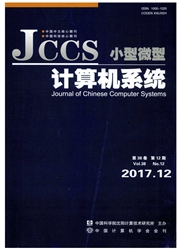

 中文摘要:
中文摘要:
“乒乓”量子通信协议的量子直接通信已引起了许多学者们的关注,然而,由于双向量子信道的对称性,该协议存在安全性缺陷.基于量子纠错码(QECC)编码原理和构造技术提出了一种新的攻击策略.基于该攻击策略分别对纠缠态和非正交态的“乒乓”协议进行了论证,并从信息论角度对Eve可以获得的信息量和可能被检测到的概率进行了分析.分析结果表明,以前提出的"乒乓"量子通信协议都是不安全的,即攻击者可以在不被检测到的情况下获得传输的信息.
 英文摘要:
英文摘要:
"Ping-Pong" quantum communication protocol may be employed to transmit deterministically information, so it has instrigued mang researchers. However, there are drawbacks on the security due to the symmetry of the employed two-way quantum channel. In this paper we propose a new attack strategy to eavesdrop the initially transmitted information based on the techniques of quantum error correction code (QECC). In addition, an attack strategy of "Ping-Pong" scheme based either entanglement state or nonorthogonal state is proofed and demonstrated, respectively. Furthermore, information obtained by Eve and the possible probability detected by the legitimate communicators are analyzed by employing information theorems. Detail proofs and analysis illustrate all previous "Ping-Pong" quantum communication schemes are insecure, i. e. , the eavesdropper may obtain all available information without being detected.
 同期刊论文项目
同期刊论文项目
 同项目期刊论文
同项目期刊论文
 期刊信息
期刊信息
